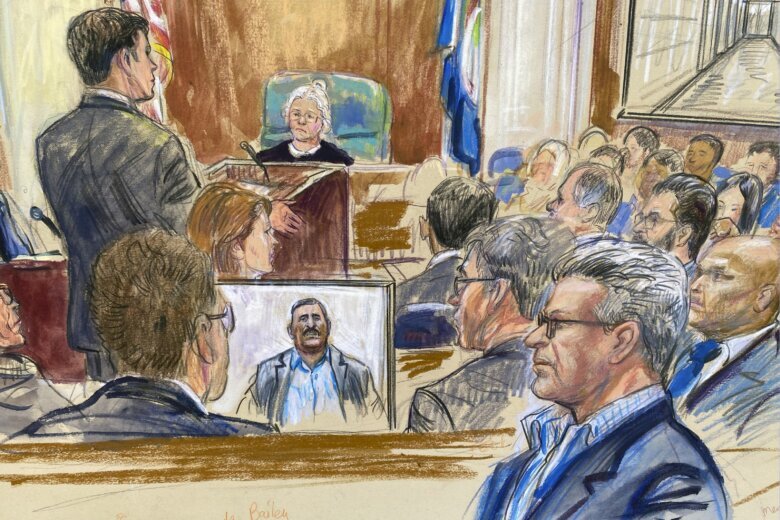
ALEXANDRIA, Va. (AP) — The judge presiding over the trial of a military contractor accused of contributing to the mistreatment of detainees at the Abu Ghraib prison in Iraq two decades ago speculated Wednesday that the jury may not be able to reach a verdict after it concluded a seventh day of deliberations.
“It’s a very difficult case,” U.S. District Judge Leonie Brinkema told lawyers in the case Wednesday afternoon, outside the jury’s presence. “I’m not sure we’re going to get a verdict.”
The eight-person civil jury in Alexandria has now been deliberating for more than a week, longer than the trial itself.
Three former Abu Ghraib detainees sued Reston, Virginia-based contractor CACI, which supplied civilian interrogators to the prison in 2003 and 2004.
A worldwide scandal erupted in 2004 when photos became public showing U.S. soldiers smiling while they inflicted physical and sexually humiliating punishments on naked detainees.
The plaintiffs allege that CACI contributed to their abuse, even if its interrogators didn’t directly inflict it, by instructing military police guarding the prison to impose harsh treatment as a means to “soften up” detainees for questioning.
CACI has denied wrongdoing and has argued that the Army should be held responsible for any misconduct.
While numerous soldiers were convicted and sentenced to prison for their roles at Abu Ghraib, none of the civilian interrogators were ever charged with a crime.
The jury has asked frequent questions throughout its deliberations. Most have focused on whether CACI or the Army is responsible for misconduct by CACI interrogators if those interrogators were integrated, at least to some extent, into the Army’s chain of command.
When the jury asked two pointed questions Wednesday afternoon about two key pieces of evidence in the case, Brinkema begged off providing a substantive answer.
She told jurors that their role as factfinders requires them to evaluate the evidence and give it the weight they deem appropriate.
The jury said Friday it was deadlocked, but Brinkema instructed the jury at that time to keep working toward a consensus.
Jurors gave no indication of how many believe CACI should be held liable. Indeed, they are instructed at the outset of deliberations never to provide the court any sort of numerical breakdown on their views.
If the jury can’t reach a unanimous verdict, the judge would declare a mistrial, and the plaintiffs could seek a new trial with a new jury.
The trial involves the first lawsuit brought by Abu Ghraib detainees to be heard by a U.S. jury. It was delayed by 15 years of legal wrangling and multiple attempts by CACI to have the case dismissed.
Copyright © 2024 The Associated Press. All rights reserved. This material may not be published, broadcast, written or redistributed.








